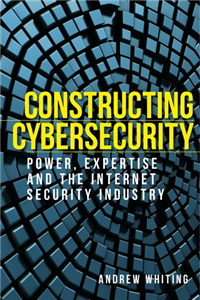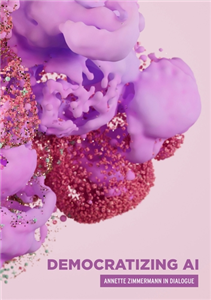Your Search Results
-
Promoted Content
-
Promoted ContentHumanities & Social SciencesMay 2020
Constructing cybersecurity
Power, expertise and the internet security industry
by Andrew Whiting
-
 Trusted Partner
Computing & ITFebruary 2021
Trusted Partner
Computing & ITFebruary 2021Digital contention in a divided society
Social media, parades and protests in Northern Ireland
by Paul Reilly
How are platforms such as Facebook and Twitter used by citizens to frame contentious parades and protests in 'post-conflict' Northern Ireland? What do these contentious episodes tell us about the potential of information and communication technologies to promote positive intergroup contact in the deeply divided society? These issues are addressed in what is the first in-depth qualitative exploration of how social media were used during the union flag protests (December 2012-March 2013) and the Ardoyne parade disputes (July 2014 and 2015). The book focuses on the extent to which affective publics, mobilised and connected via expressions of solidarity on social media, appear to escalate or de-escalate sectarian tensions caused by these hybrid media events. It also explores whether citizen activity on these online platforms has the potential to contribute to peacebuilding in Northern Ireland.
-
 Trusted Partner
Computing & ITFebruary 2021
Trusted Partner
Computing & ITFebruary 2021Digital contention in a divided society
Social media, parades and protests in Northern Ireland
by Paul Reilly
How are platforms such as Facebook and Twitter used by citizens to frame contentious parades and protests in 'post-conflict' Northern Ireland? What do these contentious episodes tell us about the potential of information and communication technologies to promote positive intergroup contact in the deeply divided society? These issues are addressed in what is the first in-depth qualitative exploration of how social media were used during the union flag protests (December 2012-March 2013) and the Ardoyne parade disputes (July 2014 and 2015). The book focuses on the extent to which affective publics, mobilised and connected via expressions of solidarity on social media, appear to escalate or de-escalate sectarian tensions caused by these hybrid media events. It also explores whether citizen activity on these online platforms has the potential to contribute to peacebuilding in Northern Ireland.
-
 Trusted Partner
Computing & ITJanuary 2021
Trusted Partner
Computing & ITJanuary 2021Digital contention in a divided society
Social media, parades and protests in Northern Ireland
by Paul Reilly
How are platforms such as Facebook and Twitter used by citizens to frame contentious parades and protests in 'post-conflict' Northern Ireland? What do these contentious episodes tell us about the potential of information and communication technologies to promote positive intergroup contact in the deeply divided society? These issues are addressed in what is the first in-depth qualitative exploration of how social media were used during the union flag protests (December 2012-March 2013) and the Ardoyne parade disputes (July 2014 and 2015). The book focuses on the extent to which affective publics, mobilised and connected via expressions of solidarity on social media, appear to escalate or de-escalate sectarian tensions caused by these hybrid media events. It also explores whether citizen activity on these online platforms has the potential to contribute to peacebuilding in Northern Ireland.
-
 Trusted Partner
Computing & ITMarch 2024
Trusted Partner
Computing & ITMarch 2024Digital contention in a divided society
Social media, parades and protests in Northern Ireland
by Paul Reilly
How are platforms such as Facebook and Twitter (now X) used by citizens to frame contentious parades and protests in 'post-conflict' Northern Ireland? What do these contentious episodes tell us about the potential of information and communication technologies to promote positive intergroup contact in the deeply divided society? These issues are addressed in what is the first in-depth qualitative exploration of how social media channels were used during the union flag protests (December 2012-March 2013) and the Ardoyne parade disputes (July 2014 and 2015). The book focuses on the extent to which affective publics, mobilised and connected via expressions of solidarity on social media, appear to escalate or de-escalate sectarian tensions caused by these hybrid media events. It also explores whether citizen activity on these online platforms has the potential to contribute to peacebuilding in Northern Ireland.
-
 Trusted Partner
Humanities & Social SciencesMay 2020
Trusted Partner
Humanities & Social SciencesMay 2020Constructing cybersecurity
Power, expertise and the internet security industry
by Andrew Whiting
Constructing cybersecurity adopts a constructivist approach to cybersecurity and problematises the state of contemporary knowledge within this field. Setting out by providing a concise overview of such knowledge this book subsequently adopts Foucauldian positions on power and security to highlight assumptions and limitations found herein. What follows is a detailed analysis of the discourse produced by various internet security companies demonstrating the important role that these security professionals play constituting and entrenching this knowledge by virtue of their specific epistemic authority. As a relatively new source within a broader security dispositif these security professionals have created relationships of mutual recognition and benefit with traditional political and security professionals.
-
 Trusted Partner
Computing & ITMay 2026
Trusted Partner
Computing & ITMay 2026Democratizing AI
by Annette Zimmermann
Democratizing AI offers a powerful rethinking of how artificial intelligence should be governed. Challenging the dominance of tech elites in shaping AI's future, Zimmermann argues that AI deployment is a political act-one that must be subject to democratic control. She proposes a practical "playbook" for reclaiming agenda-setting power through civic participation, public ownership, and institutional reform. Engaging with leading critics, Zimmermann defends a risk-sensitive proceduralist approach while acknowledging the deeper structural challenges posed by capitalism, inequality, and democratic fatigue. This book is a call to action: to resist learned helplessness, confront techno-authoritarianism, and shape AI's trajectory in line with democratic values. Thoughtful, urgent, and visionary, the book is essential reading for anyone concerned with the future of technology and democracy.











